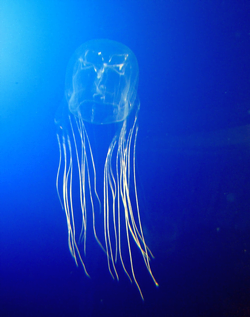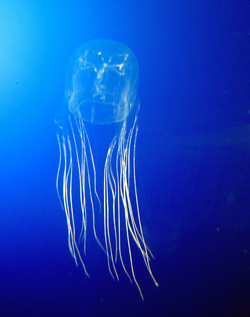By Prof. Levine & Dr. Salganik
Hello to our dear followers
Introduction
Dreams were an important subject in ancient times and were interpreted and understood in different ways by different cultures and civilizations. It was generally believed that the dreamer goes wandering in the world of dreams or that the dream penetrates him in a passive way, and sometimes is sent to him by the gods.
In ancient Egypt, dreams were considered significant, and dream interpretation was an essential part of their religious and cultural beliefs. The Egyptians believed that dreams were a way to communicate with the gods and that they contained messages about the future. In the 14th century BC, appeared the earliest dream book with interpretations of these transmissions. It is interesting to note that the Egyptian dream solvers introduced the "theory of contrasts": they claimed, for example, that a dream of death foretells a long life.
In ancient Greece, dreams were believed to be messages from the gods, and their interpretation was essential to understanding the will of the gods. Many sacred places in Greece were used for the "incubation" of dreams: the visitors were invited to use drugs and potions that put them to sleep, and their dreams were defined as prophecies, in connection with the illnesses and circumstances of the dreamers' lives.
In ancient Rome, dreams were also considered significant and were often used to predict the future. The Roman writer and orator Marcus Tullius Cicero wrote a famous book on the subject called "Interpretation of Scipio's Dream", which explored the meaning of his dream and its interpretation. In this dream, Scipio is exposed to the eternal life of the soul, and as he looks out over the entire universe, he learns its secrets and realizes that our existence in this world is fleeting and meaningless.
In ancient China, dreams were believed to be a way to communicate with the ancestors and spirits, and their interpretation was essential to understanding the will of the gods. The Chinese also developed a system of dream interpretation, which was based on the symbolism of various objects and events in dreams. In general, dreams were seen as significant and were often interpreted as messages from the divine or the supernatural. In Matach's educational library it is noted based on sources that Chinese scholars believed that dreams occur when the spiritual soul is temporarily separated from the body and can converse with the souls of the dead, or with the gods. Thus, in the 14th century AD, visitors to a Chinese city were required to sleep the first night inside the temple of the god of the city, in order to be able to receive the transmissions – which is somewhat reminiscent of the "incubator" temples of classical Greece.
We have to admit that there are many theories about the nature of dreams, which implies that one central theory that is solid and backed by scientific evidence has not yet been formulated.
In general, some of the prominent dream theories claim that the role of dreaming is, among other things: consolidating memories, processing emotions, expressing our deepest desires, gaining practice in dealing with potential dangers, and more. Thus many experts believe that we dream due to a combination of these reasons and not due to one particular theory. In addition, while many researchers believe that dreaming is essential for mental, emotional and physical well-being, some scientists suggest that dreams serve no real purpose at all.
Read more »
By Prof. Levine & Dr. Salganik
שלום רב לעוקבנו היקרים
הקדמה
חלומות היו נושא חשוב בעת העתיקה ופורשו והובנו בדרכים שונות על ידי תרבויות ותרבויות שונות. בדרך כלל האמינו כי החולם יוצא לשוטט בעולם החלומות או שהחלום חודר אליו באופן סביל, ולעיתים נשלח אליו מן האלים.
במצרים העתיקה נחשבו חלומות למשמעותיים, ופירוש חלומות היה חלק חיוני מאמונותיהם הדתיות והתרבותיות. המצרים האמינו כי חלומות הם דרך לתקשר עם האלים וכי הם מכילים מסרים על העתיד. במאה ה14 לפני הספירה, הופיע אצלם ספר החלומות הקדום ביותר ובו פירושים לשדרים הללו. מעניין לציין כי מעניין כי פותרי החלומות המצריים הציגו את "תיאוריית הניגודים": הם טענו, למשל, שחלום על מוות ינבא חיים ארוכים.
ביוון העתיקה, האמינו כי חלומות שהם מסרים מהאלים, ופרשנותם הייתה חיונית להבנת רצון האלים. מקומות מקודשים רבים ביוון שימשו ל"הדגרה" של חלומות: המבקרים הוזמנו להשתמש בסמים ובשיקויים שהפילו עליהם תרדמה, וחלומותיהם הוגדרו כמנבאים, בהקשר לתחלואי ונסיבות חייהם של החולמים.
ברומא העתיקה, חלומות נחשבו אף הם למשמעותיים ושימשו לעתים קרובות לחיזוי העתיד. הסופר והנואם הרומי מרקוס טוליוס קיקרו כתב ספר מפורסם בנושא בשם "פרשנות על חלומו של סקיפיו", שחקר את משמעות חלומו ואת פרשנותו. בחלומו זה נחשף סקיפיו לחיי הנצח של הנפש, ובעודו משקיף על היקום כולו, הרי הוא לומד את סודותיו ומבין אל נכון, שקיומנו בעולם זה הוא בר חלוף ודל משמעות.
בסין העתיקה, האמינו כי חלומות הם דרך לתקשר עם האבות והרוחות, והפרשנות שלהם הייתה חיונית להבנת רצון האלים. הסינים פיתחו גם מערכת של פירוש חלומות, שהתבססה על סמליות של חפצים ואירועים שונים בחלומות. באופן כללי, חלומות נתפסו כמשמעותיים ולעתים קרובות פורשו כמסרים מהאלוהי או העל-טבעי. בספריה החינוכית של מטח מצויין על סמך מקורות כי מלומדים סיניים האמינו כי חלומות מתחוללים כאשר הנפש הרוחנית, נפרדת זמנית מן הגוף, ויכולה לשוחח עם נשמות המתים, או עם האלים. כך במאה ה-14 לספירה נדרשו מבקרים בעיר סינית לישון בלילה הראשון בתוך המקדש של אל העיר, בכדי שיוכלו לקלוט את השדרים – מה שמזכיר במידה מסוימת את מקדשי ה"הדגרה" של יוון הקלאסית.
נודה כי ישנן תיאוריות רבות על טבעם של חלומות, מה שרומז כי עדיין לא נתגבשה תיאוריה אחת מרכזית שהינה מוצקת ומגובה בהוכחות מדעיות.
באופן כללי כמה מתיאוריות החלום הבולטות טוענות כי תפקיד החלימה הוא בין היתר: איחוד זיכרונות, עיבוד רגשות, ביטוי הרצונות העמוקים ביותר שלנו, השגת תרגול בהתמודדות עם סכנות פוטנציאליות ועוד. כך מומחים רבים מאמינים כי אנו חולמים בשל שילוב של סיבות אלה ולא בשל תיאוריה אחת מסוימת. בנוסף, בעוד חוקרים רבים מאמינים כי חלימה חיונית לרווחה נפשית, רגשית ופיזית, כמה מדענים מציעים כי חלומות אינם משרתים מטרה אמיתית בכלל.
Read more »
By Prof. Levine & Dr. Salganik
דמיון מודרך הוא טכניקת הרפיה והדמיה הכוללת יצירת דימויים מנטליים בכדי לעזור לאנשים להתמקד, להירגע ואולי אף להרפא. זוהי צורה של התערבות במרחב של גוף-נפש המשתמשת בכוחו של הדמיון על מנת להביא לשינויים חיוביים ברווחה הרגשית לעיתים אף ברווחה הפיזית.
ניתן לתרגל דמיון מודרך לבד ביחידות או בעזרת מטפל או לעיתים אף בעזרת הקלטה קולית. הדמיון המודרך מצורף לעתים קרובות לטכניקות הרפיה אחרות, כגון נשימה עמוקה, הרפיית שרירים מתקדמת, או מדיטציה.
שימושים בדמיון מודרך:
א] הפחתת מתח: דמיון מודרך יכול לעזור לאנשים להפחית מתח על ידי קידום הרפיה והפחתת חרדה. תרגול כזה זה יכול להיות מועיל במיוחד עבור אלה החווים מתח מתמשך, מתח הקשור לעבודה או מתח מבעיות אישיות.
ב] שליטה והפחתה בכאב: דמיון מודרך הוכח כמסייע לאנשים להתמודד עם כאב אקוטי או כרוני, כמו חולי סרטן למיניו, חולים לאחר ניתוח או אנשים עם מצבי כאב כרוניים. על ידי מיקוד המוח בתמונות נעימות, הטכניקה יכולה לעזור להפחית את תפיסת הכאב.
ג] ריפוי רגשי: ניתן להשתמש בדמיון מודרך לטיפול בבעיות רגשיות, כגון חרדה והפרעת דחק פוסט-טראומטית (PTSD). על ידי עידוד דימויים מנטליים חיוביים, דבר יכול לעזור לשפר את מצב הרוח ולקדם תחושה של רווחה.
ד] שיפור השינה: אנשים עם נדודי שינה או הפרעות שינה עשויים להפיק תועלת מדמיון מודרך, שכן הוא יכול לעזור להשקיט את המוח ולעודד הרפיה, מה שמקל על ההירדמות והשינה.
ה] שיפור ביצועים ספורטיביים: ספורטאים משתמשים לפעמים בדמיון מודרך בכדי לדמיין ביצועים מוצלחים ולשפר את המיקוד, המוטיבציה והביטחון העצמי.
ו] תמיכה במערכת החיסון: מחקרים מסוימים גורסים כי דמיון מודרך עשוי לעזור לחזק את מערכת החיסון על-ידי הפחתת סטרס וקידום הרפיה, מה שיכול, בתורו, לשפר את הבריאות הכללית.
ז] הכנה לפרוצדורות רפואיות: ניתן להשתמש בדמיון מודרך בכדי לסייע למטופלים להתכונן נפשית לניתוח או להליכים רפואיים אחרים, כמו גם להתמודד עם כל חרדה או פחד הקשורים להליך.
ח] ולבסוף כעזר לצמיחה אישית לגילוי עצמי ולהתמודדות וויסות רגשי אל מול חולי : דמיון מודרך יכול לעזור לאנשים לחקור את המחשבות, הרגשות והחוויות הפנימיות שלהם, לטפח צמיחה אישית ומודעות עצמית ותפיסה והכלה של נכות ומחלה. מטרה זו תבוא לידי ביטוי בדמיון המודרך "הספונטני או בעצם שאינו מודרך" שנביא להלן.
Read more »
By Prof. Levine & Dr. Salganik
Hello to our followers, this time we will address you in a different way and please let your imagination run wild…
The year was 2084, and the place was a spacious living room in an unnamed city. Alexey Gerbord sat in his chair looking from the height of his years at the huge water tank in front of him. The deadly box jellyfish, also known as the "Sea Wasp", appeared in front of him swimming slowly in the water of the huge aquarium that filled half of the living room of the house. This deadly jellyfish is called a cube jellyfish because of its body structure. With great effort, Garbord obtained it from the Indonesian sailor and tamed it because it was a complex jellyfish in its behavior and faster than other simple jellyfish, while its appearance, which deterred every human eye, spoke dearly to his heart. Its scientific name was Chironex fleckeri and its origin? You guessed it, from the Indonesian islands, it swam now peacefully in front of him, looking at him with her two dozen eyes, four of which were watching him with an almost human expression. Although he was wary of her and never reached out to shake her arms, he used to ask her questions that troubled him and disturbed his peace. Her answer was not in speech, but through thoughts that hurt his mind as if they were placed, inserted, or transmitted to his mind, something that psychiatrists used to call in the early 2000s as “though insertion”.
He has just finished reading the Machiavelli's “Prince” for the third time, each time pinning a page from the pages of the book to the transparent glass of the container and allowing the transparent jellyfish to observe and read as well. This jellyfish is thought to be mostly water and venom and "my God", Alexey thought "how can it read ? I will not understand, since it has no brain". And yet Alexey believed that her wisdom was greater than that of a human wisdom. And she even strangely often reminded him of the artificial intelligence such as CHAT GPT that had joined his life sixty years ago.

PICTURE 1
The deadly Cube jellyfish, also known as the "Sea Wasp"
This time he turned and asked her: "How is it that in our world, a limited number of people lead crowds led by these leaders?"… "How does this happen?" And you the reader may ask, "how did he asked this a creature which is unable to hear his voice?" The answer is that he showed her a page with the question on it. The jellyfish circled two or three times in the tank with its long arms clinging tightly to its sides, its white transparent body with purple silver streaks passed by him, and the answer appeared and flashed in his mind: "Those who are the led ones are influenced by shapers of public opinion who see their role in the necessity of shaping and correcting the opinion of the led crowd. These shapers represent a limited number of top leaders.” “It’s so reassuring, of course, for the people in the crowd” – added the jellyfish – “to quote these agitators and their words without them fully understanding the dilemmas that exist at the basis of the proposals and messages sent to them and even the possible solutions to these dilemmas other than the only solution offered to them according to the interests of the shapers."..…
"The propaganda of the shapers of public opinion" – continued the jellyfish – "is referring mainly not only to the intellect but also emphasizes emotional aspects, usually conveying targeted, simple, catchy and repeated messages to the crowd, which, as mentioned, arouses emotions to messages that the leaders and opinion shapers are interested in. And likewise, as it is usually presented in propaganda, there is a prominent hostile person, a group, an ideology, against whom the campaign of persuasion is directed."
She carried on: "Sigmund Freud in his essay on crowd psychology ("Group Psychology and the Analysis of the Ego") from 1921 in which Freud refers to the psychology of a society or crowd and especially to what he calls the "herd instinct", argues that there is a phenomenon of a crowd behaving in a regressive way. A crowd that drifts in the direction of those shaping its opinion without the individuals in the crowd really and deeply knowing why they behave and drift in this way, and don't even fully understand what it is all about. More often than not what motivates people is the sense of belonging to the group of the crowd of individuals, who now have a common goal designed for them that unites them. And being inspired by the opinion makers, they have a strong desire that others also join them, and they have a sense of urgency, and a feeling that a catastrophic scenario is about to come true, of an imminent disaster, and all of this is accompanied by very strong emotions."

PICTURE 2
Sigmund [Shlomo] Freud Austrian Jewish psychiatrist founder of psychoanalysis [1856-1939]
Freud in his writings mentions Gustave Le Bon, who in his book "Psychology of Crowds", writes:
"The most amazing thing about a crowd is that, by virtue of being a crowd, they become a collective soul, due to which they feel, think and act in a completely different way as a crowd than each of them would think and act if they were acting alone as an individual."

PICTURE 3
Gustave Le Bon, French psychologist and sociologist [1841-1931]
Le Bon claims that the crowd's tendency towards conservatism demonstrates a considerable weakness in its logical thinking. Its behavior is essentially emotional, and is based on myths, images and symbols, and tends to enjoy following leaders [and public opinion shapers] who will dictate its path. Le Bon, speaks of 'contagion' between the people of the crowd, a form of hypnosis-like phenomenon, in which the crowd is in a suggestible state. In a crowd, the feeling of responsibility is absent, an instinctive feeling of liberation appears accompanied by a feeling of power that can be called "the power of the crowd", a crowd that becomes impulsive and acts out of impulses. Such a crowd is susceptible to the influence of words and messages and their magical power."

PICTURE 4
An excited crowd.
"How does the jellyfish know that?" thought Gerbord Alexey, and at one point he remembered that the jellyfish sent a long arm to a pile of books that he had placed a week before near the water tank, a pile in which there were delicacies side by side, Freud's book, Le Bon's and Machiavelli's along with social psychology, history, and war books and these dropped from the arm of his friend the jellyfish into the water of the huge aquarium and soon they were wrapped in all dozens of its arms in front of its two dozens eyes and especially in front of its four well developed eyes and were finally digested and arrived into its transparent insides.
Here Alexey asked the jellyfish: "Tell me, what are the causes of mob mentality?" This time the jellyfish didn't go around in a circle in the aquarium and didn't even change its colors. "I will answer you," she replied, "what I learned from social psychology, since it lists six factors:
Deindividuation – when people are part of a group, they experience a loss of self-awareness.
Deidentification – when people are part of a group, they can lose their sense of personal identity.
Emotions – being part of a crowd induces heightened emotional states, be it excitement, anger, hostility, etc.
Acceptability – behaviors that are normally perceived as unacceptable become acceptable when others in the group are seen performing them
Anonymity – people feel anonymous within a large group, which reduces their sense of responsibility.
Diffusion of responsibility – being part of a group creates the perception that violent or unacceptable behavior is not a personal responsibility but a group responsibility.
Finally, the larger the group, audience or crowd, the greater the chance of de-individuation and diffusion of responsibility."
"I’ve got it," Alexey said to himself…"But sometimes", he thought, “it leads to disengagement, struggle and even killing"…"This reminds me of civil wars" thought Alexey. "This reminds me of divisions in families on the basis of identification with ethnic and other national groups while in the background there is a feeling of a strong threat to survival" he continued to think, and then Garbord Alexey turned to the jellyfish, which was now circling in the aquarium, closed its two dozen eyes and confirmed his last thoughts in his head.
"The main essence," the jellyfish's words suddenly struck in his mind, "is that in every society there is a small group that shapes public opinion and manipulates many people in order to achieve its goals. This happens whether in a small group, whether in an organization, or in a country. The leaders therefore use a group or a crowd that is led according to their goals by shapers of public opinion. And these shapers talk about the danger to survival and convince the crowd to put this as a top priority over other needs, even over basic needs such as eating, reproduction, etc. Hence, these shapers are therefore using the survival instinct in order to achieve their goals. The crowd is therefore a moldable body at the mercy its leaders."
Here Alexei turned again and again to the jellyfish until he begged, but for some reason the jellyfish was silent and no thought of her hurt his mind. So Alexei returned to her the next day, not before emptying a basket full of fish into the aquarium water that was soon wrapped around her long arms, swallowed by her intestine, where it was gradually digested, gradually decomposed and was seen through her transparent body.
"Tell me, my friend," he turned to jellyfish, "what are the mechanisms for activating the crowd?"
At first the jellyfish answered in his mind that "the crowd must know that there is an extremely dangerous and uncompromising enemy”.
"Secondly" she added, "a person must know that its life or freedom and even of those close to him are in danger."
A person must also be convinced that there is a heavy and threatening uncertainty in the current situation and that the enemy may prevail and that catastrophic consequences are eminent….The crowd must even believe that the absolute truth is on the side of the shaper of public opinion and perceive that blatant lies are being told by the opinion shapers and leaders of the opposing side."
Here the jellyfish circled twice in the tank waving her arms and added that "the crowd must believe that there is only one solution without any alternatives and that there should be no contact or negotiation with the enemy and finally she added that it is necessary for the crowd to believe that it must take an immediate action and there shouldn’t be any compromise."
“Indeed”, Alexey thought, "This is a universal mechanism. The thinking dictated to the crowd therefore becomes reductionist, dichotomous, one of black or white without intermediate shades, and the crowd must believe with all its heart that whoever is not with them is against them."
Here Alexei invited to his home his friends Dr. Igor Salganik and Prof. Joseph Levine, who are respected in their own eyes and even in his eyes, "And what would you say?" – he asked. But these two were amazed and shocked at the sight of the huge tank containing the jellyfish, with her eyes looking at them as if they were a prey, with the terrifying transparency of her organs.
Alexey, who sensed this, calmed them down, and handed them two transparent glasses with wine as clear as the aquarium water. Then Alexei spoke to them the previous words of the jellyfish as they appeared in his mind. And despite their reservations about the “monster”, these two psychiatrists agreed with her words and even added:
"We talked," these two said, "in a previous conversation that in a totalitarian country, the majority often change their way of thinking to the way of thinking of the dictator, for the sake of their mental and even physical survival, Thus the positions of the dictator or the totalitarian state take over, override their own positions. This is the essence of indoctrination. Here in each and every individual, in his 'directorate of internalized characters' that builds his 'social self', appears a new dictator-self which overrides the previous dictator-self of his inner directorate [see previous conversations]. In fact, the real figure of the external dictatorial leader becomes a new internalized 'dictator-self' in the individual's 'directorate of internalized figures' dictating positions characterized by black and white mode of thinking without intermediate shades.
Here, embarrassed and apologetic, Alexey asked his guests to wait in a nearby room, as he felt that it would be difficult for the sensitive jellyfish to speak to him and that she preferred privacy, he then turned again to this transparent and gelatinous jellyfish, though without a brain, having an incomprehensible wisdom in her body.
"Tell me my friend the jellyfish?" Alexey addressed her, "How can a person avoid being drawn into the tornado of the crowd and being cut off from its usual ways, and from its usual cognitive judgments ? Oh oh, as the jellyfish answered in Alexey's thought, shaking her arms in
the water, "I know this from my experiences with the masses of huge shoals of jellyfish that wash up on the shores of the seas, and I assume that a similar thing happens to humans as well." Jellyfish continued with her thought, "Please let humans know the mechanisms of manipulation. Draw
before your eyes the image of a satanic enemy, who tries to convince you to perceive and understand a given situation as a threatening danger for you, which could fatally harm your physical or symbolic survival, trying to convince you that there is only one solution to this that the leader is the only one who knows.
In such a situation, you humans, should try to avoid as much as possible exposure to the media or to people who carry out such a practice, especially try to avoid discussions with people or a group of people who are already affected by these manipulations. Be aware of their attempts to get you to
let them know which side you are on in the situation. Do not share your positions and points of view with them. Be careful, look for reputable people who are known to stand up to manipulation, who see multiple points of view and don't see things in black and white dichotomous thinking manner. Sometimes these people will even swim against the current of the crowd. Try to understand their way of thinking and dealing with such situations, and if possible – try to establish contact with them and cooperate with them…
Also, try to continue with your normal flow of life in the family, with friends, at work, in the pursuit of hobbies, and do not allow yourself to be excessively preoccupied with the subject that is at the center of the manipulation effort… Finally, try to inform yourself about the subject in question
through various and diverse sources that provide different points of view that will allow you to form your own opinions."
Here the jellyfish was lighthearted and splashed its many arms in the aquarium water until they drifted and swelled like a sigh as if to say that it is not easy not to drift with the crowd and form an independent opinion.
"And what do you think could be a solution?", Alexey asked, the jellyfish "for situations in which there are two sides, each led by manipulative public opinion shapers, who give each side the feeling that its survival is in tangible and immediate danger, and it is forced to act against the enemy that is the opposing side?"
The jellyfish spined around in the tank, the fish still being digested and sprouted from her transparent intestine, inserting six ways of solving the problem into Alexey's mind:
"1] As soon as the anxiety about the conflict is already more intense than the survival anxiety of each side, there might appeara mediator, actually a newer, independent public opinion shaper. He should be accepted by both parties addressing the survival fears of each party offering a compromise that meets and resolves the fears of both parties.
2] The appearance or rise of a powerful third dictatorial factor that dictates a solution sometimes even by force of arms or through powerful sanctions.
3] Severe damage to one of the opponent groups [and thus actually the second group wins] which weakens it and enables a solution.
4] Gradual stabilization of the conflict, becoming chronic while developing mechanisms of adaptation to the new established conditions.
5] The emergence of a strong existential threat from another factor that brings the hawks to unite in the war against it.
6] Existence of a hidden structured mechanism that exists in both groups all the time (only that they are not aware of it) which enables change within a longer time span.
7] The introduction of external influences or changes in values that will gradually change the conflict’s definition and provide a solution.
That's it gentlemen for the time being,
Best regards
The deadly cube jellyfish also known as the "sea wasp" and her friend Alexey Garbord.
and, as always, yours
Dr. Igor Salganik and Prof. Joseph Levine
By Prof. Levine & Dr. Salganik
שלום רב לעוקבנו, הפעם נפנה אליכם באופן שונה ואנא מרקו את כושר דמיונכם…
השנה הייתה 2084, והמקום היה חדר סלון רחב ידיים בעיר בת בלי שם. גרבורד ניזמן אלכסיי ישב בכיסאו מביט ממרום שנותיו במיכל המים הענק שמולו. מדוזת הקופסה הקטלנית, המכונה גם "צרעת הים", ניבטה מולו שטה באיטיות במי האקווריום הענק שמילא מחציתו של סלון הבית. מדוזה קטלנית זו נקראת אף קובייתית בשל מבנה גופה. בעמל רב השיג אותה גרבורד מיורד ים אינדונזי ונצר אותה שכן הייתה זו מדוזה מורכבת בהתנהגותה ומהירה יותר ממדוזות פשוטות אחרות ואילו המראה שלה אשר הרתיע כל עין אנוש דיבר יקרות לליבו. זו שכינויה המדעי ,Chironex fleckeri ומקורה? ניחשתם נכון, מן האיים האינדונזיים שחתה לה כעת בשלווה מולו, מביטה בו בשני תריסר עיניה שארבע מתוכן התבוננו בו בארשת כמעט אנושית. אף שנזהר היה ממנה ומעולם לא הושיט ידו ללחוץ את מי מזרועותיה, נוהג היה לשאול אותה קושיות שהקשו עליו והטרידו את שלוותו. תשובתה הייתה לא בדיבור, אלא באמצעות מחשבות המפציעות במוחו משל הונחו, הוחדרו, או שודרו למוחו דבר שהפסיכיאטרים נהגו לכנות בתחילת שנות האלפיים בלע"ז THOUGHT INSERTION. זה עתה סיים לקרוא בפעם השלישית את הספר הנסיך למקיאוולי תוך שהוא מצמיד בכל פעם דף מדפי הספר אל זכוכית המיכל השקופה ומאפשר למדוזה השקופה אף היא להתבונן ולקרוא. מדוזה זו חשב רובה ככולה מים וארס וכיצד תוכל לקרוא ולייעץ לי זאת לא אבין שכן מוח אין לה. ואף על פי כן סבר כי עולה חוכמתה על חכמת אדם. ואף הזכירה לו תכופות באופן מוזר את האינטלגנציה המלאכותית דוגמת GPT שהצטרפה לחייו לפני יובל שנים.

מדוזת הקופסה הקטלנית המכונה גם "צרעת הים",
הפעם פנה ושאל אותה: "הכיצד זה בעולמנו מספר מצומצם של אנשים מובילים המונים המובלים על ידי מובילים אלו ?"… "כיצד הדבר קורה ?" שאל. ותשאלו, כיצד שאל בת בלי קול זו? הציג לה דף ובו השאלה. המדוזה סבבה פעמיים ושלוש במיכל וזרועותיה הארוכות נאחזות חליפות בדפנותיו, גופה השקוף הלבין קמעה ופסי כסף סגולים חלפו בעדו, והנה ותשובתה הופיעה והבזיקה במחשבתו: "המובלים מושפעים ממעצבי דעת קהל הרואים בתפקידם את ההכרח לעצב ולדייק את דעת ההמון המובל. מעצבים אלו מייצגים מספר מצומצם של מנהיגים מובילים. נוח כמובן הוסיפה לאיש ההמון לצטט תועמלנים אלו ודבריהם מבלי שיבין לעומק את הדילמות הקיימות בבסיס הצעותיהם ומסריהם אליו ואף את הפתרונות האפשריים לדילמות אלו מלבד הפתרון האחד שיציעו על פי האינטרסים שלהם."…..
"התעמולה של מעצבי דעת הקהל" המשיכה "מופנית לא רק אל האינטלקט אלא גם מדגישה היבטים רגשיים, מעבירה בדרך כלל מסרים מכוונים, פשוטים, קליטים וחוזרים אל ההמון, המעוררים כאמור את הרגש, מסרים שהמנהיגים ומעצבי הדעה מעוניינים בהם. וכמו כן בדרך כלל מוצג בתעמולה יריב בולט אחד שמסע השיכנוע מכוון כנגדו."
"זיגמונד פרויד" הוסיפה , "במסתו אודות פסיכולוגיית ההמונים ["פסיכולוגיה של ההמון ואנליזה של האני" משנת 1921 בה מתייחס זיגמונד פרויד לפסיכולוגיה של חברה או של המון ובעיקר למה שהוא מכנה "דחף העדר"] דיבר על כך שישנה תופעה של המון המתנהג באופן רגרסיבי. המון שנסחף בכיוון מעצבי דעתו מבלי שהפרטים בהמון יודעים באמת ולעומק מדוע הם מתנהגים ונסחפים כך, ואף אינם מבינים היטב במה מדובר. לא פעם מה שמניע את האנשים זו תחושת השייכות וההשתייכות לקבוצת המון הפרטים, שכעת מטרה משותפת שעוצבה עבורם מלכדת אותם. ובהשראת מעצבי הדעה יש להם רצון עז שאחרים יצטרפו גם הם אליהם, ויש להם תחושת דחיפות, ותחושה שתסריט קטסטרופלי עומד להתגשם, של אסון המשמש ובא, וכל זה מלווה ברגש עז משמעותי מאוד "

זיגמונד [שלמה] פרויד פסיכיאטר יהודי אוסטרי מייסד הפסיכואנליזה[1856-1939]
פרויד בכתביו מזכיר את אוגוסט לה-בון, אשר בספרו "פסיכולוגיה של ההמונים", כותב:
"הדבר המדהים ביותר בהמון הינו שמעצם היותם המון הם הופכים מן נפש קיבוצית, שבשלה הם חשים, חושבים ופועלים בצורה אחרת לחלוטין כקבוצת המון מזו שכל אחד מהם היה חושב ופועל אילו פעל לבדו כיחיד."

גוסטב לה בון פסיכולוג וסוציולוג צרפתי [1841-1931]
לה בון טוען כי ההמון נוטה לשמרנות מדגים חולשה ניכרת בחשיבתו ההגיונית. התנהגותו היא רגשית מעיקרה, ומבוססת על מיתוסים, דימויים וסמלים, ונוטה לנהות אחר מנהיגים שיכתיבו לו את דרכו [כולל מעצבי דעת קהל]. לה-בון, מדבר על 'הדבקה' בין אנשי ההמון, מן תופעה דמויית היפנוזה, בה ההמון מצוי במצב סוגסטיבי [ונתון כאמור להשפעת מעצבי דעת הקהל]. בתוך המון,זה נעדרת תחושת האחריות, מופיעה תחושת שחרור יצרית המלווה בתחושת עוצמה שניתן לכנות "עצמת ההמון", המון שהופך אימפולסיבי ופועל מתוך דחפים. המון שכזה נוח להשפעת מילים ומסרים ולכוחם המאגי."

המון משולהב
"מניין יודעת זאת המדוזה" חשב גרבורד אלכסיי, ובאחת נזכר ששלחה המדוזה זרוע ארוכה לערמת ספרים שהניח שבוע לפני כן קרוב למיכל המים, ערמה בה שהו מעדנות זה לצד זה, ספרו של פרויד, זה של לה בון וזה של מקיאוולי לצד ספרי פסיכולוגיה חברתית וספרי היסטוריה ומלחמה ואלו נשמטו מזרועה של ידידתו המדוזה אלי מי האקווריום הענק ועד מהרה נכרכו בכל עשרות זרועותיה אל מול שני תריסרי עיניה ובמיוחד מול ארבעת עיניה המפותחות ומשסיימה לקראם הפליאה בהם את רעלניה ובאו אלו אל קרביה השקופים.
כאן שאל אלכסיי את המדוזה "אימרי לי, מהם הגורמים למנטליות ההמון ?" הפעם לא חגה במעגל באקווריום ואף לא החליפה צבעיה. "אשיב לך" ענתה "את שלמדתי מן הפסיכולוגיה החברתית שכן זו מונה שישה גורמים:
דאינדיבידואציה– כאשר אנשים הם חלק מקבוצה, הם חווים אובדן של מודעות עצמית.
זהות – כשאנשים הם חלק מקבוצה, הם יכולים לאבד את תחושת הזהות האישית שלהם.
רגשות – להיות חלק מקבוצת המון הרי זה משרה מצבים רגשיים מוגברים, בין אם אלו התרגשות, כעס, עוינות וכו'.
קבילות – התנהגויות שבדרך כלל נתפסות כבלתי קבילות הופכות למקובלות כאשר אחרים בקבוצה נראים מבצעים אותן.
אנונימיות – אנשים מרגישים אנונימיים בתוך קבוצה גדולה, מה שמפחית את תחושת האחריות שלהם.
פיזור אחריות – להיות חלק מקבוצה יוצר את התפיסה שהתנהגות אלימה או בלתי מקובלת אינה אחריות אישית אלא קבוצתית.
לבסוף ככל שהקבוצה, הקהל או ההמון גדולים יותר, כך גדל הסיכוי שתהיה דה-אינדיבידואציה ופיזור אחריות".
" אכן הבנתי" דיבר אלכסיי לעצמו …"אך עיתים" חשב .."הרי בשעה שיש שתי קבוצות נוגדות ולכל אחת מעצבי דעת קהל משלה וכל אחת חשה איום קיומי עז, יתכן וייווצר בעקבות כך פילוג בעמים, בחברות או במשפחות עד כדי חרם, התנתקות, מאבק ואף הרג"…"זה מזכיר לי מלחמות אזרחים" חשב אלכסיי. "זה מזכיר לי פילוגים במשפחות על רקע הזדהות עם קבוצות לאומיות אתניות ואחרות כשברקע תחושה של איום עז על יכולת ההישרדות" המשיך וחשב, ואזי פנה גרבורד אלכסיי אל המדוזה וזו סבבה כעת באקווריום סגרה את שני תריסר עיניה ואישרה בראשו את מחשבתו האחרונה.
"השורש", הפציע לפתע דברה של המדוזה במחשבתו, "הוא שיש בכל חברה חלק קטן המעצב את דעת הקהל ומבצע מניפולציות על אנשים רבים על מנת להשיג את מטרותיו. הדבר קורה אם בקבוצה קטנה, אם באירגון, ואם במדינה. המנהיגים משתמשים אפוא בקבוצה או בהמון המובל על פי מטרותיהם באמצעות מעצבי דעת קהל. ומעצבים אלו מדברים אודות סכנה להישרדות ומשכנעים את קהל ההמון לשים זאת בעדיפות עליונה על פני צרכים אחרים אפילו על פני צרכים בסיסיים כאכילה, כיצר רבייה ועוד. מכאן שיש אפוא שימוש של מעצבים אלו ביצר ההישרדות על מנת להשיג את מטרותיהם. ההמון הוא אפוא גוף פלסטי הנתון לחסדי המעצבים."
כאן פנה אלכסיי שוב ושוב למדוזה עד תחינה, אך משום מה זו שתקה ונאלמה ושום איזו מחשבה שלה לא הפציעה במחשבתו. חזר אליה אפוא אלכסיי למחרת היום, לא לפני שרוקן למי האקווריום סל עמוס דגה שנעטף עד מהרה בזרועותיה הארוכות, נבלע במעיה, שבם הולך ומתעכל, הולך ומתפרק ונחזה מבעד לגופה השקוף.
"אימרי לי ידידתי" פנה למדוזה "מהם המנגנונים להפעלת ההמון?"
תחילה ענתה במחשבתו כי "על ההמון לדעת כי יש אוייב מסוכן ביותר חסר פשרות.
"שנית" הוסיפה, "עליו לדעת כי חייו או חרותו ואף של אלו של הקרובים לו בסכנה.
צריך גם לשכנעו כי יש אי ודאות מעיקה ומאיימת במצב הדברים וכי האויב עלול לגבור ולדבר השלכות קטסטרופליות….על ההמון אף להאמין כי האמת האבסולוטית הינה בצד מעצב דעת הקהל ולתפוס כי שקרים בוטים נאמרים על ידי מעצבי ומנהיגי הצד שכנגד."
כאן סבבה המדוזה פעמיים במיכל מנפנפת בזרועותיה והוסיפה במחשבתו כי "על ההמון להאמין כי יש רק פתרון אחד ללא כל אלטרנטיבות וכי אין לבוא בכל מגע או משא ומתן עם האויב ולבסוף הוסיפה כי יש צורך והכרח לקהל ההמון להאמין כי עליו לנקוט בפעולה מיידית וללא פשרות".
אכן חשב אלכסיי "זהו מנגנון אוניברסלי. החשיבה המוכתבת להמון הופכת אפוא רדוקציוניסטית, דיכוטומית, כזו של שחור או לבן ללא גווני ביניים , ועל ההמון להאמין בכל ליבו כי מי שלא עימו הוא נגדו."
כאן הזמין אלכסיי לביתו את ידידיו הדר' איגור סלגניק והפרופ' יוסי לוין, הנכבדים בעיני עצמם ואף בעיניו, "ומה תגידו?" שאל. אלא ששני אלו נדהמו השתאו ונזדעזעו למראה המיכל הענק ובו המדוזה הג'לית, עיניה הרושפות לעומתם והרואות בהם טרף, והשקיפות המבעיתה של איבריה. אלכסיי שחש בדבר הרגיע אותם, והגיש להם שתי כוסות שקופות ובהן יין שיכר צלול כמי האקווריום. אומנם שעדיין חשו אימה מסוימת כעת זו פחתה ואזי השיח להם אלכסיי את דבריה הקודמים של המדוזה כפי שהופיעו במחשבתו. ולמרות הסתייגותם ממנה הסכימו שני פסיכיאטרים אלו לדבריה ואף הוסיפו:
"דיברנו", אמרו שני אלה, "בשיחה קודמת כי במדינה טוטליטרית לא פעם הרוב משנים את דרך חשיבתם לדרך חשיבת הדיקטטורה, שכן לצורך השרדותם הנפשית ואף עיתים הפיזית, הם עוברים תהליך של השתלטות עמדות הדיקטטורה או המדינה הטוטליטרית על עמדותיהם [OVERRIDE] שיש המכנים זאת אינדוקטרינציה. כאן בכל יחיד ויחיד מופיע ב'דירקטוריון הדמויות המופנמות' הבונה את 'האני החברתי' שלו, רודן עצמי חדש המייצג את עמדות הדיקטטורה ומשתלט על דירקטוריון הדמויות המופנם הקיים ואף על הרודן העצמי הקודם של דירקטוריון זה [ראה הקורא שיחות קודמות]. בעצם דמות המנהיג הדיקטטורי החיצוני, המציאותי , הופכת ל'עצמי רודן' חדש ב'דירקטוריון הדמויות המופנמות' של היחיד ומכתיבה את עמדותיו התומכות כעת בעמדות קיצוניות בעלות מאפייני שחור ולבן וללא גווני ביניים.
כאן ביקש אלבסיי, נבוך ומתנצל מזוג אורחיו לחכות בחדר סמוך, שכן חש שיקל למדוזה הרגישה ודרוכה לנוכחות זרים אלו מחמת הקטלניות הטבועה בהוויתה לדבר עימו ביחידות, ואזי נפנה שוב אל מדוזה שקופה וג'לית זו, בת בלי מוח, אך שחכמה לא מובנת בגופה ובזרועותיה הארסיות להפליא.
"אימרי לי ידידתי המדוזה ?" פנה אליה אלכסיי "איך יכול אדם להימנע מלהישאב לתוך הטורנדו של הקהל ולהיות מנותק מדרכיו הרגילות, ומיכולות השיפוט הקוגניטיביות הרגילות שלו בהיותו בגפו?
הו הו כמו ענתה המדוזה במחשבתו של אלכסיי בטלטלה זרועותיה במים " מכירה אני זאת מהתנסויותי עם המוני להקות המדוזות העצומות הנשטפות אל חופי הימים ומשערת אני שדבר דומה קורה אף בני האדם". ואזי המשיכה במחשבתו "אנא מכם הכירו בני האדם את מנגנוני המניפולציה. ציירו לנגד עיניכם דמות אויב שטני, המנסה לשכנע אותכם לתפוס ולהבין מצב נתון כסכנה מאיימת עבורכם, העלולה לפגוע אנושות בהישרדותכם הפיזית או הסמלית, מנסה לשכנע אותכם שיש רק פתרון אחד לכך אותו המנהיג יודע. במצב שכזה, בני האדם, נסו להימנע ככל האפשר מחשיפה לתקשורת או לאנשים שמבצעים פרקטיקה שכזו, במיוחד נסו להימנע מדיונים עם אנשים או קבוצת אנשים שכבר מושפעים ממניפולציות אלו. היו מודעים לניסיונות שלהם לגרום לכם לידע אותם באיזה צד אתם מצדדים בסיטואציה. אל תשתפו אותם בעמדותיכם ונקודות המבט שלכם. שימו לב, חפשו אנשים בעלי מוניטין הידועים כעומדים בפני מניפולציות, הרואים מספר נקודות מבט ואינם תופסים דברים בחשיבה דיכוטומית שחור לבן. לעיתים אנשים אלו אף ישחו נגד זרם ההמון. נסו להבין את דרך החשיבה וההתמודדות שלהם עם מצבים כאלה, ואם הדבר אפשרי – נסו ליצור קשר עימם ולשתף איתם פעולה…..כמו כן נסו להמשיך עם זרם החיים הרגיל שלכם במשפחה, עם חברים, בעבודה, בעיסוק בתחביבים, ואל תיתנו לעצמכם להיות עסוקים יתר על המידה בנושא שנמצא במרכז מאמץ המניפולציה…… לבסוף נסו ליידע את עצמכם אודות הנושא המדובר באמצעות מקורות מידי שונים ומגוונים המספקים נקודות מבט שונות שיאפשרו לכם ליצור דעות משלכם". כאן הכחילה קלות המדוזה והטיחה את זרועותיה הרבות במי האקווריום עד כי אלו נסתחפו וגעשו משל נאנחה כאומרת שלא קל הדבר שלא להסחף עם ההמון ולגבש דעה עצמאית.
"ומהו הפתרון לדעתך?" שאל אלכסיי "למצבים בהם שני צדדים, מובלים כל אחד בידי מעצבי דעת קהל מניפולטיביים, הנותנים לכל צד תחושה שהישרדותו בסכנה מוחשית ומיידית, והכרח עליו לפעול כנגד האוייב שהוא הצד שכנגד?"
סבבה המדוזה הפעם פעם אחת בודדת במיכל , ודגי הארוחה עוד מתעכלים וניבטים ממעיה השקופים ופרסה במחשבתו של אלכסיי שישה דרכי פתרון והריהם לפניכם: " 1] ברגע שהחרדה מהקונפליקט כבר יותר עזה מחרדת ההישרדות של כל צד יופיע מתווך, בעצם מעצב דעת קהל חדש יותר, נאטרלי ומקובל על הצדדים שיגע ויתייחס לפחדי ההישרדות של כל צד ויציע פשרה העונה לפחות חלקית על פחדים אלו של שני הצדדים. 2] הופעת או עליית גורם דיקטטורי שלישי בעל עוצמה המכתיב פתרון לעיתים אף בכוח הזרוע או באמצעות סנקציות. 3] פגיעה חזקה באחת הקבוצות [וכך בעצם השניה מנצחת] שמחלישה אותה ומאפשרת פתרון. 4] התייצבות הדרגתית של הקונפליקט והפיכתו לכרוני כך ששני הצדדים ממשיכים לחיות אמנם מפולגים אך מפתחים מנגונני הסתגלות לתנאים החדשים. 5] הופעת איום קיומי חזק מגורם אחר המביא את הניצים להתלכד במלחמה כנגדו. 6] קיום מנגנון מובנה ה נסתר הקיים בשתי הקבוצות כל העת רק אלו אינן מודעות לו, העולה ומתגלה ומאפשר שינוי בדרך כלל בטווח שאינו מיידי או הרחוק יותר. 7] כניסת השפעות חיצוניות או שינויי ערכים שתקופה עתידית מביאה בכנפיה, השפעות שישנו את הקונפליקט ויאפשרו פתרון במצב זה בו תנאי המסגרת ישתנו בעקבות כך."
עד כאן רבותי להפעם.
בברכה
מדוזת הקופסה הקטלנית המכונה גם "צרעת הים" וידידה גרבורד ניזמן אלכסיי,
דר' איגור סלגניק ופרופ' יוסי לוין
By Prof. Levine & Dr. Salganik
לראשונה פגשתי בחווית הנשגב באמצעות משה [שם בדוי], חולה המאובחן עם סכיזופרניה. פגשתי אותו בבית החולים הפסיכיאטרי רחב הידיים בפיטסבורג. מדשאות בית החולים כוסו שלג לבן, ואילו הוא היה לבוש קל, ברישול מה, חייכן בטבעו, "אני… משה.. אני כך אומרים לי…סובל מסכיזופרניה" סח לי כמו הדבר אינו נוגע לו. ישבנו על ספסל אבן במסדרון המוביל למחלקה אשר מצידו דשא מושלג ובאמצעיותו של זה עץ נישא רווי עלים שפיסות שלג נושרות מהם ואילו קצהו נראה כנוגע לא נוגע בשמיים האפורים. משהו במשה סקרן אותי, אולי הכלאחר יד, בלא כל משא רגשי בו אמר "אומרים עלי שאני סובל מסכיזופרניה" , כאילו לאמירה זו משקל מועט אם בכלל בעולמו הנפשי. ואכן משסיפר לי את סיפורו הבנתי את יחסו הרגשי לאבחנה שהדביקו לו. הדבר לא נבע מהשטחה רגשית האופיינית למחלה זו, אלא משום שלאחר שפגש בנשגב לא הייתה כל משמעות מיוחדת בעולמו הנפשי לתוויות , אבחנות, וסטיגמות למיניהן. "תשמע" אמר לי בפניו המחייכות וקולו הצרוד " …הייתה זו שעת בוקר ככל הבקרים… אלא כשהשמש הזהובה עלתה אט אט מבין ההרים חשתי באופן מופלא התרוממות רוח יוצאת דופן, התרגשות עילאית ויראה ובת קול לחשה לי כי… 'נגלה לך סוד הבריאה, … נתקרבת לאלוהות'. "איך ..למה דווקא ביום מסויים הדבר קרה?" שאלתי. לכך לא ידע לענות ותלה בי עיינים גדולות, משל שואל הוא אותי להסבר. לבד מלומר לו כי חווה חוויה פסיכוטית לא ידעתי לתת לו תשובה וחשתי כי אמירה שכזו עושה עוול נורא לחוויה הנשגבת יוצאת הדופן אותה עבר. פגשתי אותו כעבור שבועיים. מזג האויר כבר השתפר. חולים הסתובבו חסרי מעש במסדרונות בית החולים לבושים חלוקים תכולים. והנה חזיתי בו מתחבא מאחורי אחד מעמודי המסדרונות, עוקב אחרי חולה ירוד שמכנסיו שמוטים ורטובים, זקנו מדובלל ופניו עגומים וחרושי קמטים. ניגשתי אליו…"שששש…ששש" לחש לי "שלא יראה אותנו". "מי?", שאלתי. והוא, משה, הצביע באצבע כפופה ומהססת אל החולה הירוד, נרגש כולו ותחושת התעלות בפניו ולחש לי בקולו הצרוד" אל תחזה בו.. תזהר.. המבט בו ישרוף כל.. זהו האלוקים". "אלוהים אדירים" חשבתי, "משה זה חושב שחולה עלוב נפש זה שמכנסיו שמוטים ורטובים משתן הוא האלוהים בכבודו ובעצמו. וואו… איזו תחושה יוצאת דופן של חרדה ואפילו אימה ממבטו השורף של 'האלוהים' המשולבת בהתרוממות רוח נרגשות ועזה הוא חווה" אז לא ידעתי לתת מילים לתחושה שכזו ואולי אף עתה לא אבינה דיה אך נראה לי כי ניתן לכנותה תחושת נשגבות".
האנציקלופדיה של הרעיונות [דוד גורביץ ודן ערב: אנציקלופדיה של הרעיונות, הוצאת בבל ומשכל, 2012]. גורסת כי "…הנשגב חותר לעונג פרדוקסלי, הנחווה מול העצום מאיתנו. זוהי התפעלות הכורכת יחד הנאה וחרדה מפני אובייקטים הנחשבים על-אנושיים, מוחלטים ובלתי ניתנים לייצוג, כגון אוקיינוס או פסגה מושלגת. בניגוד לחוויית היפה, התואמת את גבולות הניסיון האנושי, הנשגב פונה אל העל-אנושי ואל הבלתי ניתן להגדרה. הנשגב נוגע באלימות של הממשי ומתכתב עם יצרי המוות…".
אמנם רבים מבינים אינטואיטיבית שהנשגב הוא משהו יוצא דופן ומעבר להבנת בני אנוש. אך נראה שהמילה עצמה מאחדת תחת מטריה אחת רגשות רבים ושונים, אפילו מנוגדים, – "פחד", "אימה", "יראת כבוד","תחושת התעלות" כל אלו הם חלק מהמאפיינים המיוחסים לחוויית הנשגב. לכך מתווסף קושי שכל אחת מהמילים הללו יכולה, בנוסף, לתאר או להעביר שפע של רגשות. "פחד", למשל, הוא גמיש מספיק כדי להחילו על מגוון של רגשות ועם זאת לא מדויק דיו בכדי לציין את הרגש הספציפי יותר. הפחד בצפייה בפניו של אדם מאיים ולעומתו הפחד המנותק והקוגניטיבי יותר שחווים בעת צפייה בסצנות טבעיות של נצחיות שונים באופן משמעותי, אך המילה עצמה מניחה אותם תחת אותו מונח. הגמישות היא מחד נכס בשיח הלשוני אך חוסר הדיוק הוא חיסרון. יש שהניחו ש"הנשגב" הוא קומפלקס קוגניטיבי-רגשי מובחן, הכולל מרכיבים רבים אך נבדל מכל אחד מהם בנפרד, כלומר שהשלם הינו אחר מאשר חלקיו [קאנט, וראה למטה טומוהירו אישיזו וסמיר זקי].
ובכל זאת, הנה הפסח מתקרב ועימו עונת הקושיות…וברוח הזמן שאלתי תחילה את ChatGPT [יישום האינצלגנציה המלאכותית העונה לא רע לשאלות מובחנות אך לעיתים נוטה לקונפובולציות כאותו חולה דמנטי על מנת לתמוך בגירסותיו], אנא תני לי דוגמאות העשויות לספק התקרבות אלי חוויית הנשגב? וזו ענתה:
Read more »
 Prof. Joseph Levine, M.D. is an emeritus associate professor in the Division of Psychiatry, Faculty of Health Sciences, Ben Gurion University in Israel. Prof. Levine is a certified psychiatrist with clinical experience in controlled trials of adult psychiatric disorders and in psychotherapy. He was awarded a NRSAD independent investigator grant for the study of Creatine Monohydrate in psychiatric disorders -- mainly Schizophrenia. He resides and treats patients in Tel Aviv and all of central Israel.
Prof. Joseph Levine, M.D. is an emeritus associate professor in the Division of Psychiatry, Faculty of Health Sciences, Ben Gurion University in Israel. Prof. Levine is a certified psychiatrist with clinical experience in controlled trials of adult psychiatric disorders and in psychotherapy. He was awarded a NRSAD independent investigator grant for the study of Creatine Monohydrate in psychiatric disorders -- mainly Schizophrenia. He resides and treats patients in Tel Aviv and all of central Israel.







